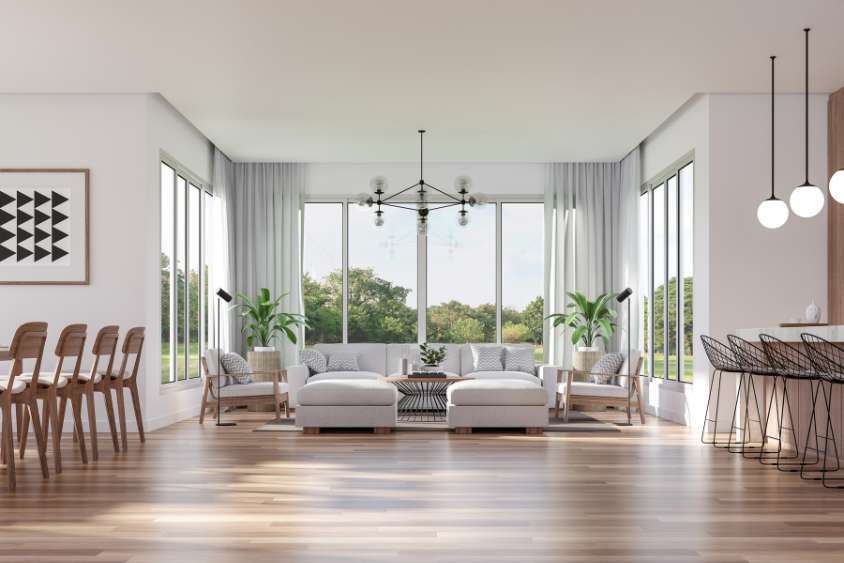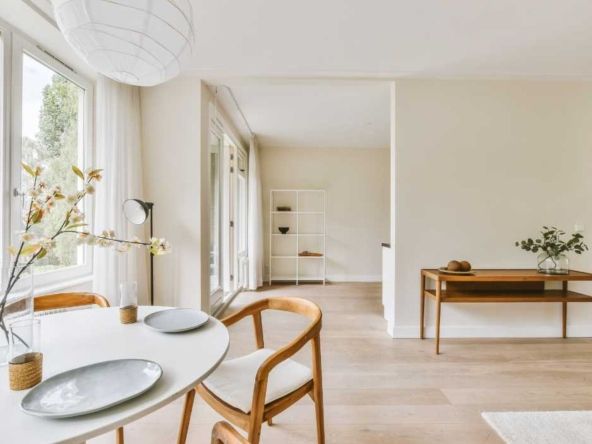Feng Shui is an ancient Chinese art that seeks to achieve harmony and balance in the environment through the arrangement of buildings, objects, and spaces. This millennia-old practice is based on the belief that the flow of energy, known as chi, can influence our well-being and prosperity. In this article, we will explore how to apply the principles of Feng Shui when finding and choosing a new home. We will discover how factors such as location, layout, and others can impact the energy of a space and how you can leverage these teachings to create a harmonious and positive environment.
The Importance of Location
When searching for a new house or apartment, it is crucial to consider the location from the perspective of Feng Shui. According to this practice, certain elements in the environment can influence the energy of a place. Some important considerations include:
1.1 Observe the area
Paying attention to the surroundings of the place you are considering is essential. Avoid homes located near power towers or mobile phone antennas, as these can generate electromagnetic interference and affect the quality of chi in the space. It is also advisable to avoid streets with steep slopes, as they may be economically unfavorable from a Feng Shui standpoint.
1.2 Seek harmony in the environment
It’s important to observe the neighborhood in general and assess whether it conveys a sense of harmony and well-being. Look for a place where people have a healthy and friendly demeanor, and where you feel safe and comfortable. Also, consider the history of the neighborhood and the building in particular. If there are many sick neighbors or negative incidents, it may be indicative of unfavorable energy in the place.
1.3 The view and environment
The view from the residence is also relevant in Feng Shui. It is preferable to have a wide and open view rather than facing another building that obstructs visibility. Additionally, it is beneficial for the building to be surrounded by other structures, as this provides additional energy protection. An environment with parks, green areas, and sounds of nature also contributes to better energy in the space.

Tips for the interior space of the house
Once you have considered the location, it’s time to examine the distribution of space within the house or apartment. Feng Shui aims to promote a harmonious flow of energy and avoid stagnation in chi. Some aspects to consider are:
2.1 The significance of the entrance
The entrance of your home is a key point for applying Feng Shui. According to this philosophy, energy enters through the main door and should flow freely throughout the house. It’s important to ensure that the main door is unobstructed, with no obstacles blocking the energy flow. Additionally, painting the door in bright colors, such as white or yellow, is recommended to create a sense of brightness and spaciousness. It’s also suggested to add elements that convey positive energy, such as flowers, candles, or pictures, and something representing water, as this element attracts good fortune. Avoid placing mirrors facing the door, as they can reflect the exterior into your home.
2.2 Avoid narrow spaces
The flow of energy in Feng Shui is undulating and fluid. Therefore, it’s important to avoid narrow spaces or narrow corridors that may block the flow of chi. These spaces can create a sense of stagnation and negatively affect the well-being of the occupants. Opt for spacious and open indoor spaces that allow energy to flow freely.
2.3 Regular shapes and well-ventilated spaces
Irregular shapes in the layout of a space can have a negative impact on Feng Shui. Areas with irregular L or triangular shapes may leave empty spaces or create discordant energies. It is preferable to choose a regular, square, or rectangular structure that provides a more harmonious flow of energy. Additionally, it’s important for rooms to be well-ventilated and receive natural light, as this contributes to a more positive energy in the space.
2.4 Staircase placement
Interior staircases also play an important role in Feng Shui. According to this philosophy, staircases are energy pathways, directing energy waves to all rooms of the house. It is recommended to avoid staircases leading directly to the main door or windows, as this can cause energy to escape, leaving the house without energy. Furthermore, it is suggested that staircases have some curves, rather than being straight, as this helps the energy flow more harmoniously.
2.5 The center of space
In Feng Shui, the center of the space is considered an important point for energy. Avoid situations where the center of the property is trapped in a room or a bathroom, as this can affect the flow of Chi in the space. It is advisable for the center of the space to be open and located in a position that allows a balanced distribution of energy throughout all areas of the house or apartment.
2.6 Water
According to Feng Shui, water is a vital element for balancing energy in a home. It is recommended to have water present in the kitchen and bathroom, as these are frequently used spaces. Ensure that the plumbing is in good condition and there are no water supply issues where you live. Additionally, it is suggested that pipes do not run beneath resting areas, such as bedrooms, to avoid disruptions in harmony and balance. If your home has water supply issues, you can compensate by incorporating plants and symbolic elements such as photos or water fountains. These elements will help enhance a fresh and vibrant energy in your home.

Feng Shui for your home
Once you find the ideal home, you can confidently apply the principles of Feng Shui to customize and balance the space. Adjust the arrangement of furniture, carefully select colors, and add strategic decorative elements to maximize positive energy in every corner of your home.
If your goal is to create a new home in harmony with the authentic principles of Feng Shui, we recommend consulting with a professional in this ancient technique. With a detailed study, you can receive personalized recommendations that will contribute to the creation of a harmonious environment. This unique approach, focused on how energy and the environment influence well-being, will result in the construction of a balanced home in complete harmony with peace and prosperity.
In conclusion, it is crucial to emphasize that while Feng Shui provides valuable guidelines for achieving a harmonious home, it is also essential to consider your own needs and preferences when selecting a residence. Ultimately, your home should reflect your comfort and well-being.





